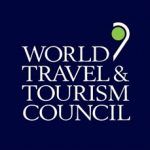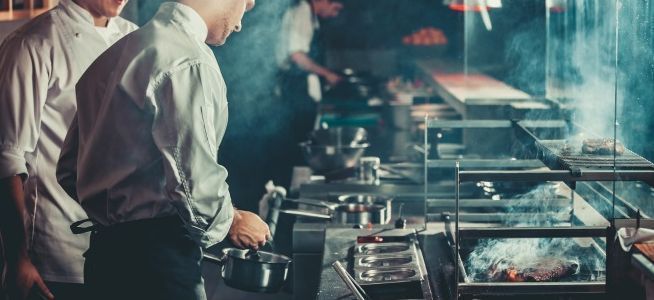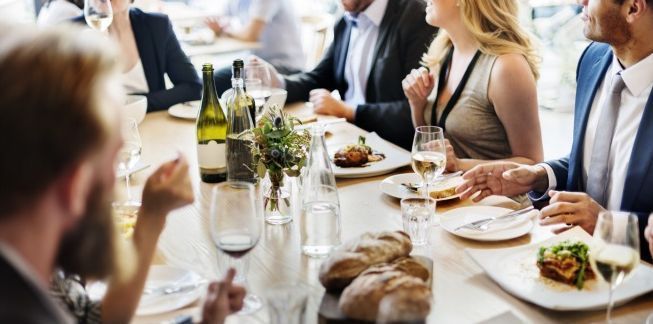Protocols for Hotels post-Covid-19 by WTTC
 The World Travel & Tourism Council (WTTC) has released suggested protocols for hotels to restart in the post Covid-19 world.
The World Travel & Tourism Council (WTTC) has released suggested protocols for hotels to restart in the post Covid-19 world.
The protocols for the hospitality industry are part of a series of proposed new measures by the WTTC, designed to rebuild confidence among consumers so they can travel safely once the restrictions are lifted.
The health and safety of travellers and workers is put at the heart of the following protocols, which are based on input from leading hospitality companies.
The protocols also take into account World Health Organisation (WHO) and the US’ Centers for Disease Control and Prevention (CDC) guidelines.
The objective is to ensure that protocols are in place across all relevant functions with an increased focus on health, safety and social distancing guidance which travellers will need and expect.
The WTTC has divided the protocols in four pillars:
1. OPERATIONAL AND STAFF PREPAREDNESS
As the hospitality industry and establishments restart their operations, they should ensure they can achieve operational excellence in the “new normal” and have trained staff to prepare and execute on the operational plans:
• Hotels may achieve operational readiness for reopening by having:
o Obtained the applicable reopening license if required by local government
o Developed a COVID-19 prevention plan including an action/checklist for infection prevention and a special cleaning and disinfection plan
o Required staffing levels available to restart operations
o Implemented protocols and guidelines for staff safety and health, including health checks for hotel staff if required by local legislation. If not required, hotel to issue and communicate a stay-home policy for anyone displaying any symptoms or an increased temperature as per World Health Organisation (WHO) guidelines
o Aligned with local travel and transport partners
o Reflected social distance in office layout and limiting the number of staff in common back-of-house areas
o Ensure social distancing protocols and guidelines, and where possible, marked to clearly communicate to guests and staff
o Integrated technologies to enable automation such as contactless payment where possible
o Implemented enhanced protocols and guidelines for food safety in restaurants, cafes and kiosks relating to supply chain control, food handling and preparation, hygiene, digitization, queue management and deep cleaning
o Evaluated innovations for cleanliness and disinfection, such as electrostatic spraying technology, UVC light and EPA based air filtration, with validation from expert bodies and governmental institutions, such as WHO, and share best practices
• Hotels should train staff to prepare and execute on operational plans by:
o Creating and implementing staff protocols and guidelines, Code of Conduct or list of expected behaviour for staff and operations
o Retraining staff regarding infection control, social distancing and enhanced hygiene measures including hand washing, the use of masks and gloves as recommended by local health authorities or stricter if required by the hospitality company procedures
o All training should be informed by the latest advice from public health authorities and/or WHO
o Continuous monitoring of well-being of team members by leadership, encouraging them to following governmental and WHO guidelines
2. ENSURING A SAFE EXPERIENCE
As the hospitality industry and establishments work to ensure they deliver a safe experience for their staff and their guests through enhanced cleanliness and hygiene best practices, hotels should ensure they have:
• Implemented processes focused on enhanced sanitation, disinfection and deep cleaning practices as well as increase their cleaning/disinfection frequency.
o Selected disinfecting products approved by health authorities
o Revisited guidance to cleaning team for all areas of the hotel including guestrooms, washrooms, elevators, fitness clubs and common areas with a specific focus on high-frequency touch points such as room key cards, light switches, and door handles.
o Extraneous items should be removed throughout the hotel
o Ensured social distancing for guests through signage and guidelines, including in elevators
• Implemented customer processes including guest information and social distancing:
o Implemented guest health/temperature checks if required by legislation
o Limited social interaction and possible queuing at reception
• Enhanced food safety and hygiene at restaurants by:
o Avoiding guest handling of food at buffets
o Regular cleaning of machines and where possible operate by staff member
o Offering room service as a solution ideally in a no-contact delivery method
o Enhancing cleaning, including disinfecting tables immediately after guest has left
o Implementing social distancing through table spacing and guest seating with suitable reinforcement
o Considering minimising what is placed on guest tables and provide mono-packaged items if feasible
• Implemented processes focused on enhanced cleaning, disinfection and social distancing for meetings and events, including:
o Implement social distancing for seating distribution and gathering size, utilising government guidance if available
o Regular cleaning of machines and where possible operate by staff member
o Increase cleaning and disinfection frequency
o Create water/soft drinks protocols and guidelines whereby it is recommended for guests to travel with their own refillable water bottles in areas where there is safe drinking water. Have individual water bottles available as an alternative
o Implement food protocols and guidelines relating to outsourced food
3. REBUILDING TRUST & CONFIDENCE
As the hospitality industry and establishments work to rebuild trust and confidence through transparency and communication
with their guests, they should ensure they have:
• Clear, consistent, and enhanced communication with customers on new health & hygiene safety protocols via the organisation’s channels, both digitally and physically at hotels. Guest facing/front office staff should be trained to answer questions
• Implement clear signage throughout the hotel to inform guests of the enhanced cleaning protocols, social distancing, and recommendations
• Shared guest guidelines on the basis of advice from health authorities which may include the wearing of face masks, guidance on hand hygiene and social distancing
4. IMPLEMENTING ENABLING POLICIES
As the hospitality industry and establishments work to recover, it is essential that enabling policies be implemented at the governmental level. The hospitality industry and establishments call on governments to:
• Work collaboratively with industry and other governments as new rules for cross-border travel are developed
• Provide financial relief to the sector through the reduction of taxes, fees and charges to stimulate demand
• Create incentives and provide direct support to boost stay in hotels as well as offering tax incentives
• Enhance destination promotion to boost demand both domestically and internationally
The protocols for hotels can be downloaded here:
Hospitality - Global Protocols for the New Normal












Will there be different categories of accommodation, hotels are not the same as rented rooms, apartments in complexes, villas and properties for Airbnb type lets, it is quite hard to apply a lot of the protocols to all types of accommodation.